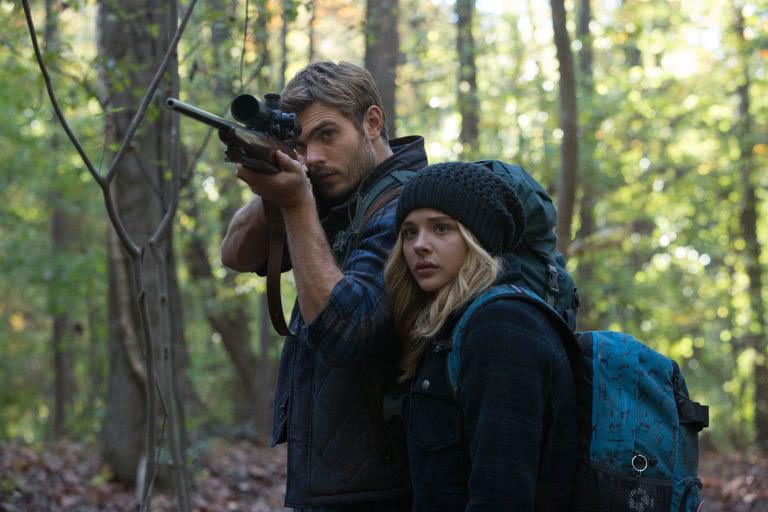★
The era of the young adult has hit Hollywood with a vengeance, and if it’s turned pages at bookstores, you can guarantee it’s had producers flicking through their chequebooks.
It hasn’t had them engaging in any kind of quality control, however, which is why The 5th Wave is 2016’s first contender for the wooden spoon award.
Aliens have arrived, and they do not come in peace. In four successive waves of attacks, they wipe out much of the population, leaving Cassie Sullivan (Chloë Grace Moretz) orphaned and alone. Through the broken world, she desperately searches for her younger brother (Zackary Arthur), while unbeknownst to her, the fifth and final ‘wave’ is being prepared…
Sound appealing? So does its trio of screenwriters, two of whom are Oscar winners, and yet they manage to toss out a script with enough plot holes to bury the entire cast. From Moretz’s magically reloading gun to her complete lack of any plot-driving agency to staggering logical oversights, the film seems to test a young adult audience’s ability to suspend disbelief.
This extends into the cast of characters. While none show any real depth, Ringer (Maika Monroe) stands out as an egregious example of outdated faux-feminist ‘badassery’ whose thick eyeliner is supposedly enough to indicate her lone-wolf mentality and aptitude for violence. Her “no more sexist remarks” comment might be more believable were it not for the camera feigning male teenage point-of-view to linger on her arse.
Moretz herself is given nothing to work with: Cassie does little but runs through the woods, torn Twilight-style between two dull male leads, and her only agency is in choosing the right man. The choice should be an obvious one, though, as even deep within the forest, Alex Roe’s Evan Walker is the most wooden thing on screen. The film’s greatest achievement may simply be finding an actor more aggressively unappealing than Dave Franco, playing a character with the emotional depth of a tofu brick.
Not only is the plot remarkably contrived but it leads to some disturbing moral conclusions. Violence is distanced, even gamified during the film’s second act, and never carries the weight that it does in, say, The Hunger Games. From one perspective, you could see the teen protagonists as resourceful, using the skills they’ve been given to survive; from another, the militarisation of young people is their only means of survival. It’s Walking Dead-level survivalist bullshit, but targeted at minors.
With its cheap special effects, absurd sleeper-agent plot twists and disturbing anti-authority pro-militia agenda, we can only hope that The 5th Wave will be the last.
The 5th Waveis in cinemas now.

































